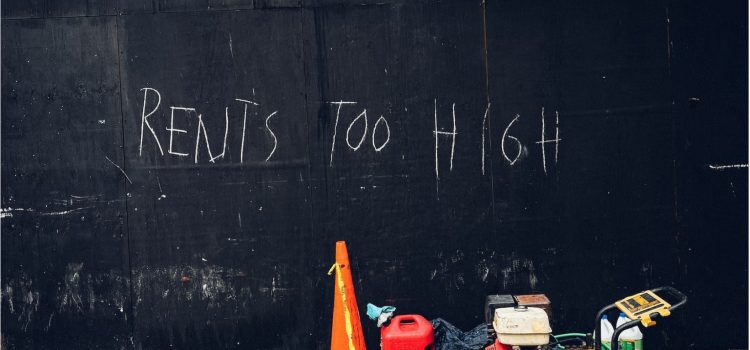
This is a free excerpt from one of Shortform’s Articles. We give you all the important information you need to know about current events and more.
Don't miss out on the whole story. Sign up for a free trial here .
Why is rent so expensive at the moment? Who has been most affected by rising rent prices? Will prices drop?
Demand for affordable housing has surged even as luxury rentals have emptied, leading to quickly rising prices in the market segment that can afford them least. Economists claim that, for lower-income households, the cost to rent is disproportionately higher.
Keep reading to find out why rent is so expensive and what the solution is, according to economists.
Why Rent Is So Expensive
Superheated competition for homes has priced out those with less-than-stellar credit ratings or who can’t afford hefty down payments. Even worse, the current housing crunch has disproportionately affected lower-income households, particularly lower-income renters. Many in this demographic are left wondering why rent is so expensive.
Let’s explore the reason rent is higher for lower-income households, according to economists.
Demand Outweighs Supply
The reason why rent is so expensive lies in the issue of supply and demand. Rents are highly responsive to supply-and-demand pressures, and as luxury metropolitan centers emptied out during the pandemic, lower-income areas experienced an influx. Consequently, landlords are steeply discounting rental properties on the upper end of the market (some even offering up to five months free rent), while increasing prices on the lower end.
Prices for lower-income properties increased faster in the first quarter of 2021 than they did in all of 2019, exacerbating existing struggles for low-wage workers. Even before the pandemic, one in four rental households spent more than half their pre-tax income on rent. During the first quarter of 2021, after experiencing widespread income losses, almost a fifth of all renters were behind on rent payments.
The racial disparities of this are pronounced. Black households accounted for 30% of those behind on their rent during the pandemic, Hispanic households accounted for 21%, and Asian households, for 18%. Only 11% of white households were in arrears. This reflects the fact that communities of color were disproportionately affected by unemployment over the course of the pandemic.
Looking for Supply-Side Solutions
Economists who have analyzed why rent is so expensive agree that the solution lies in increasing supply. More homes of all types need to be built. This is easier said than done. Experts estimate the current supply deficit at 5.5 million units. Between 2001 and 2020, builders added an average of 1.225 million new housing units annually. Even if builders increased that rate to 2.1 million units a year (the level reached briefly in 2005), it would still take a decade to shrink the current deficit.
Further, to address the issue of why rent is so expensive, simply building more housing won’t solve the problem for the people suffering the most—unless that housing is in a price range they can afford. However, because of high costs, builders are incentivized to build expensive homes despite the fact that demand is strongest for entry-level homes.
President Biden’s infrastructure plan includes several programs aimed at increasing housing supply, such as renovating distressed properties, rethinking zoning restrictions, and converting commercial buildings into residential properties. It also includes proposals to increase home building to over 2 million units a year. Proponents note that this level of new-home construction could create 2.8 million new jobs and generate over $400 billion in economic activity over 10 years, benefitting not just those in need of housing, but the economy as a whole.

Want to fast-track your learning? With Shortform, you’ll gain insights you won't find anywhere else .
Here's what you’ll get when you sign up for Shortform :
- Complicated ideas explained in simple and concise ways
- Smart analysis that connects what you’re reading to other key concepts
- Writing with zero fluff because we know how important your time is






